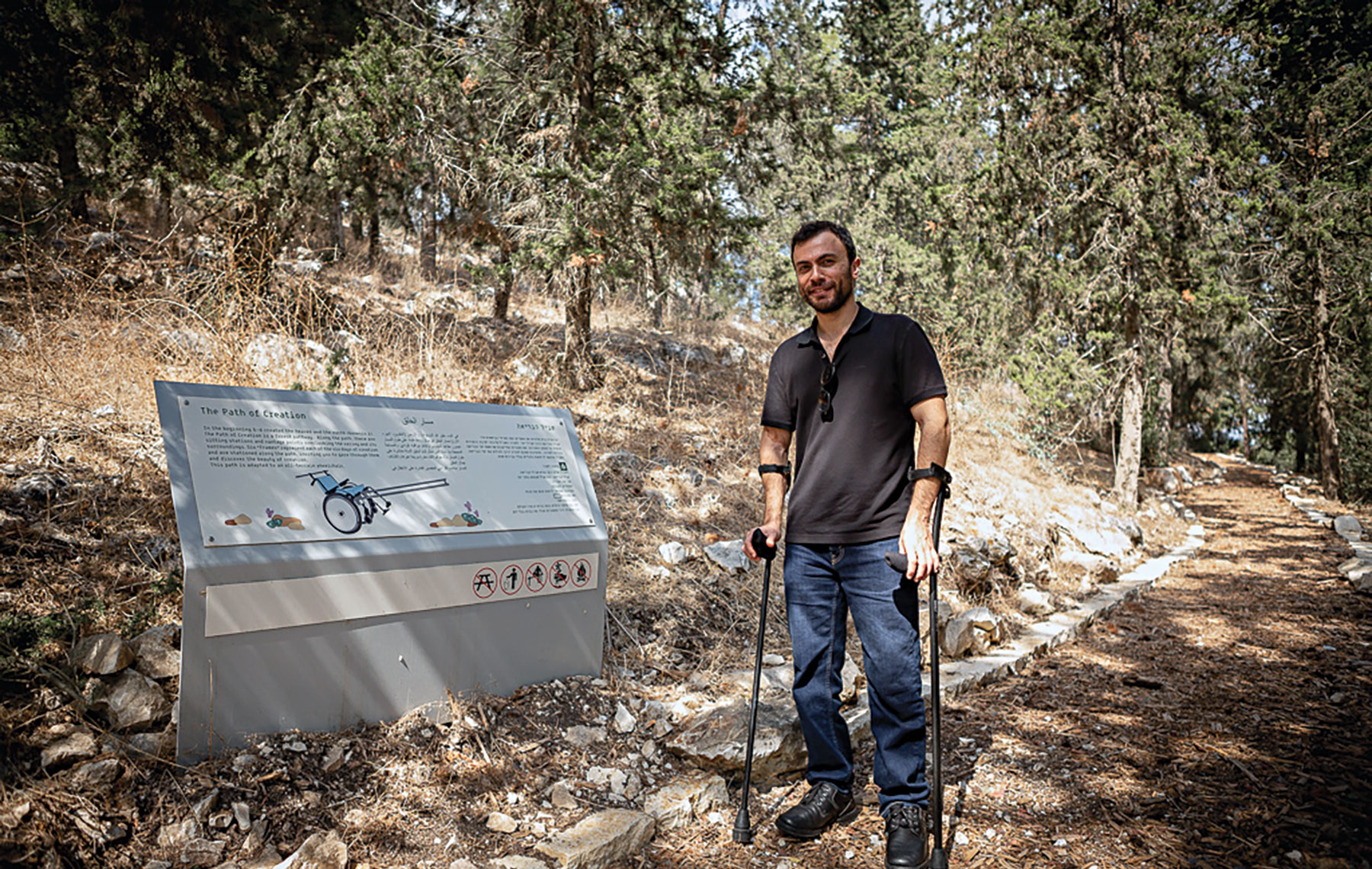 Noam Gershony. Photo courtesy of LOTEM
Noam Gershony. Photo courtesy of LOTEM At the outbreak of the Second Lebanon War in 2006, Noam Gershony was serving in the Israel Defense Forces as an Apache helicopter pilot when his aircraft crashed, killing his co-pilot and leaving him severely injured.
“I stopped having big plans because I had a pretty good idea of what my life was going to look like when I was serving,” Gershony, 35, told the Journal in a phone interview during a recent visit to Los Angeles. “I was supposed to serve five or 10 more years, and all of a sudden, things changed.“
During his rehabilitation, Gershony started playing wheelchair tennis. He also tried wheelchair basketball, swimming and the shooting range before settling on tennis. Six years later, he went on to win the gold medal in tennis at the 2012 London Paralympics.
Although he retired from wheelchair tennis after the Paralympics, Gershony continues to work out regularly. “Walking is still a challenge,” he said, “so it’s important to keep in good shape.”
He also continues the work he started during his rehab, which includes volunteering for organizations that help individuals with special needs, children with disabilities and at-risk youth. “I like it better than tennis, actually,” he said.
Gershony, who regularly travels the world to share his inspiring story, was in Beverly Hills last month to speak with Jewish National Fund (JNF) donors. JNF has partnered with the Israeli organization LOTEM, which provides 30,000 children and adults with special needs access to outdoor educational activities.
LOTEM operates two centers, an ecological farm in Emek HaShalom Nature Park near Yokneam and a space in Jerusalem. Its programs help a variety of people, including individuals with visual and hearing impairments, physical, intellectual and emotional challenges, and children on the autism spectrum, as well as at-risk youth and mothers and children residing in shelters for victims of domestic violence.
Gershony began volunteering two years after his accident because he wanted to do something with more meaning, rather than just concentrating on himself and his condition. He began teaching mathematics to at-risk youth.
“[Volunteering] gives you something that no other thing in life can give you,” he said. “Giving something without asking for something in return puts [things] in perspective.”
“People approach me after hearing my story and they say big words like ‘inspiration’ and ‘hope.’ I try to remind people of how good their life is and put things in perspective.” — Noam Gershony
Born and raised in Kfar Saba, Gershony said he was “born into your average Israeli family” and had the “perfect” childhood and a supportive family, both growing up and after his injury.
“When you are young, you don’t really know how to appreciate it because you are surrounded by kids who basically come from the same background,”“ he said. “I had everything. I served in the military. I was accepted to flight school and graduated as a pilot. Then I became a guy with a disability. Then, a few years later, I became an athlete and won a medal in the [Paralympics], and a few years after that I became a speaker.”
Gershony speaks about being able to appreciate what you have and focusing on the positive.
“People approach me after hearing my story and they say big words like ‘inspiration’ and ‘hope.’ I try to remind people of how good their life is and put things in perspective,” he said. “Other people are struggling with crises, so maybe my story and my decisions [can] enlighten the path they need to [take].”























 More news and opinions than at a Shabbat dinner, right in your inbox.
More news and opinions than at a Shabbat dinner, right in your inbox.